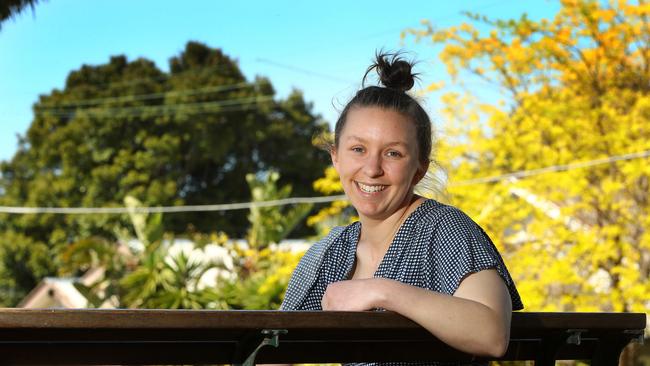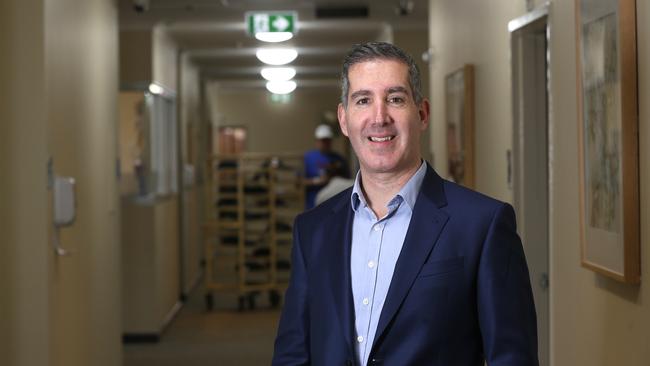Concern over social media’s role in eating disorders
A Highton woman who battled anorexia and local experts have voiced concern about how social media is driving eating disorders.

Geelong
Don't miss out on the headlines from Geelong. Followed categories will be added to My News.
Experts are concerned social media, awash with filtered images and unqualified people dishing out advice, is driving eating disorders.
Highton 26-year-old Lily Dunn was diagnosed with anorexia aged 15 and pulled out of school for six months.
She said pursuing healthy eating and fitness for her hockey had become a “slippery slope”.
“I would look up healthy eating and fitness content (online), but then it would just continue to feed me that stuff and it became more and more extreme,” she said.
“There were accounts of people with eating disorders that sort of glorified them.
“That kind of content made me feel like I wasn’t sick enough … it kind of disempowered how I was feeling.”
Ms Dunn, who had recovered by the time she was 19 and is a lived experience ambassador for Eating Disorders Victoria (EDV), said she learned terms like “thigh gap” through social media, while before and after images implied life was better after losing weight.
“Even now when I look at social media there’s heaps about fasting and not a lot of information about the risks,” she said.
The Geelong Clinic has seen an increase in eating disorders fuelled by social media.
Dr Russell Golden, clinical director of its eating disorders Proactive Recovery Enhancement Program said, said this escalated since Covid when people became more isolated and turned online for social interaction.
“This bred more and more body dissatisfaction, especially through comparisons,” Dr Golden said.
Highly filtered and idealised images were not just like looking at a magazine, but associated with unqualified social media personalities doling out advice, he said.
“YouTube and TikTok are the most popular forums contributing to this,” Dr Golden said.

The problem particularly affected females ranging in age from their late teens to early 30s, he said.
Dr Golden said having structure — activities and people to talk to — could help with purpose and connection.
“There needs to be conversations at the dining room table to understand what young people are accessing and how it’s affecting them,” Dr Golden said.
YouTube Australia public policy and government relations lead Rachel Lord said it had policies to remove content that glorified or promoted eating disorders.
A TikTok spokesperson said it was an inclusive and body-positive environment and did not allow content that depicted, promoted, normalised or glorified eating disorders.
Barwon Health eating disorder service senior clinician Somer Prowd said many of the young people it treated reported spending a substantial amount of time on social media
platforms focused on dieting and body image, which could worsen their disordered eating
behaviours.
“We encourage parents to have open discussion with their child regarding their social media usage and the type of content they consume online,” Ms Prowd said.
“Parents can also help their children develop critical thinking skills when it comes to online content, teaching them to recognise and question the techniques used to create these posts.
“It’s important to steer away from glorifying celebrity and beauty culture, as this often triggers unhealthy body comparisons.”
If you need help or support for an eating disorder, call the Butterfly Foundation’s National Helpline on 1800 334 673 or the EDV Hub on 1300 550 236
More Coverage
Originally published as Concern over social media’s role in eating disorders





